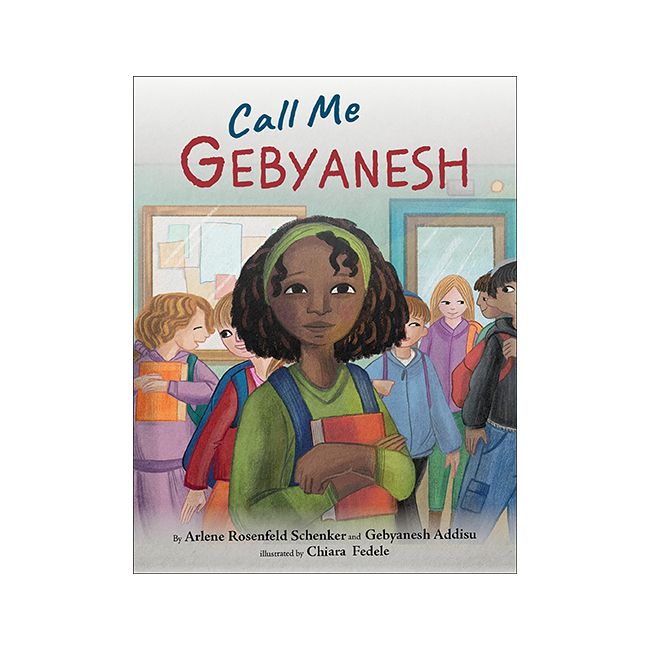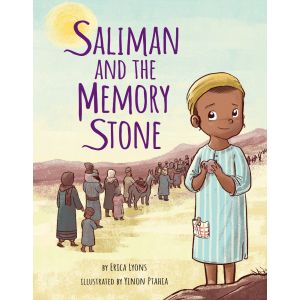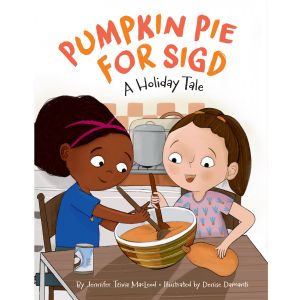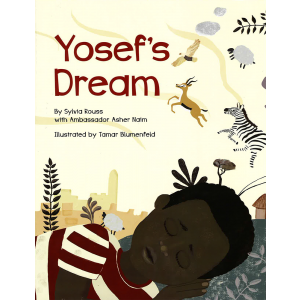Call Me Gebyanesh
"Highly recommended." —Jewish Book Council
"A good fit for collections that support social-emotional learning..." —School Library Journal
Gebyanesh Addisu teams up with co-author Arlene Schenker to turn her experiences as a young immigrant struggling in a new and strange place into a universal story about the importance of name to identity and being true to yourself and your culture.
Will I ever belong here? Gebyanesh asked herself that very question on her first day in her new school in her new country. Her family had just moved to Jerusalem from Ethiopia, and already she was feeling unsettled by how different everything was. This was only made worse when her teacher could not pronounce her name—and wouldn't really even try. "We will call you Rakhel," the teacher said. That isn't my name, Gebyanesh thought. But she said nothing.
From then on, she was Rakhel at school and Gebyanesh at home. She didn't want to tell her parents about her struggles, but when they saw her Israeli name on some of her schoolwork, she couldn't hold her frustrations back anymore. She would need their help to learn more about her heritage, her name, and how to stand up for herself.
For young Gebyanesh, everything in Israel is different from the home she left — the food, the smells, the sounds, and even her name! On the first day of school, Gebyanesh’s teacher decides that her name is too difficult to pronounce and declares her Rakhel. This colorfully illustrated book then proceeds to share Gebyanesh’s challenges in her new home. She reflects, “‘I’m so different from the Israeli kids. I know we’re all Jewish, but I look different, my lunches are different, and everything in Israel is different! I do love my name, and I don’t like pretending that I’m Rakhel when I’m Gebyanesh on the inside!’”
Ultimately, Gebyanesh stands up to her teacher and asserts her identity. She teaches us all the importance of being true to yourself.
This highly recommended book can be appreciated for the pieces of Ethiopian culture woven into its words and illustrations, and for its potential as a valuable springboard for discussions about identity with children. It’s sure to resonate with anyone who has ever felt out of place — and who hasn’t?" —Jewish Book Council
Moving is never easy, and arriving from Ethiopia, Gebyanesh feels the full weight of her new school in Israel on the very first day. While she shares her Jewish heritage with the other students, everything else about her seems to be different, from her food to her name. Initially, the adjustment from her former home to that in Israel is more challenging than she could imagine, but with bravery and support from loved ones, Gebyanesh is able to stand up for herself and embrace the things that make her unique. While this story takes place in Israel, it is a familiar experience for many people who have had to leave one country for another. This book thoughtfully presents Gebyanesh’s story in a way that is accessible to young children of myriad backgrounds. Best suited to early elementary school-aged readers due to the complexity of its narrative, the book can be enjoyed both in classrooms and in home settings. Colorful illustrations capture the attention as the longer narrative is read aloud, and youth all over the world are sure to recognize this story, no matter which side of it they happen to be on.
VERDICT What an unusual, subtle addition to a familiar conflict; this will be a good fit for collections that support social-emotional learning in early elementary students." —School Library Journal

 Reading Guide
Reading Guide 






